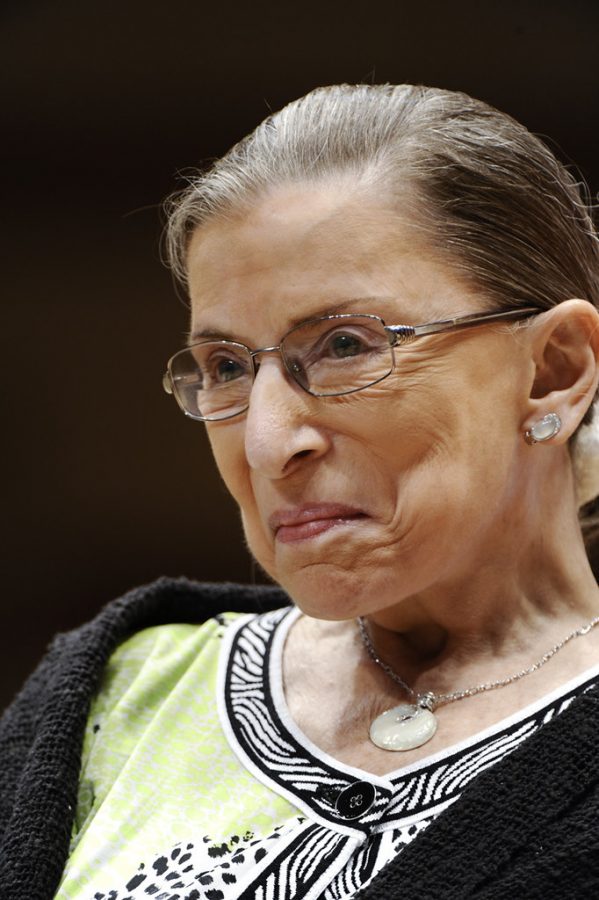Supreme Court Justice Ruth Bader Ginsberg holds lasting impact
“Ruth Bader Ginsberg” by The Aspen Institute is licensed under CC BY-NC-ND 2.0
Supreme Court Justice Ruth Bader Ginsburg was an icon on gender equality issues.
After the death of Supreme Court Justice Ruth Bader Ginsberg, many still relish in the memory of a beloved figure and political role model. Her imprint extends past the bench.
Born and raised in Brooklyn, NY, Ginsberg worked her way up the ranks as she earned her bachelor’s degree at Cornell University. After marrying her husband Martin D. Ginsberg and having her first child, she began her education in law being one of nine women in her class of more than 550 students. Later Ginsberg transferred to Columbia University where she established the ACLU Women’s Rights Project, which still continues to ensure that women can receive the equality they are guaranteed in the constitution.
While today there are more women working in the U.S. courts system, Justice Ginsburg one of the few women in a predominantly male field. Her struggle has inspired some to follow in a similar manner.
“As vice president of Best Buddies, I always strive to make it my goal to fight for inclusion and equality for those with intellectual and developmental disabilities. So she has served as a great example for me in that aspect,” senior Sara Freyre said.
Ginsberg’s legal career was centered on fighting for equality for all, as she continued her alleged “radical project” that would eliminate the separation between a man’s role and a women’s role in society. Her notorious arguments won a great following as she supported the rights of those in the LGBTQ community and women’s rights.
While Ginsberg‘s worked day and night to ensure that the classification of gender in American law is subject to equal treatment, she took on many cases that involved men in order to highlight that this type of discrimination not only happens to women. An example of how Justice Ginsburg applied the strategy was in her 1976 case Craig v. Boren, which involved raising the drinking age for men to 21 and allowing women to purchase alcohol at the age of 18 simply because young boys were more prone to driving under the influence.
Her strategy can be seen throughout many of the court cases she took on, but most importantly it helped strengthen the argument that the fight for equality affects all within the nation.
“She knew that something truly wasn’t right, that men were being treated the same as women in this specific situation. And she fought so hard for what she believed in and she was able to eventually achieve it,” Freyre said.
While there is so much more to appreciate about Justice Ginsburg’s efforts to fight for equality and human rights, one can only sum up how she impacted the lives of so many and even after her death continues to inspire people across the country.





